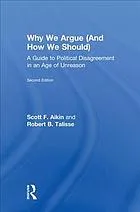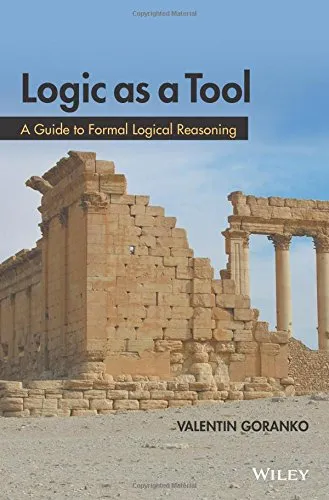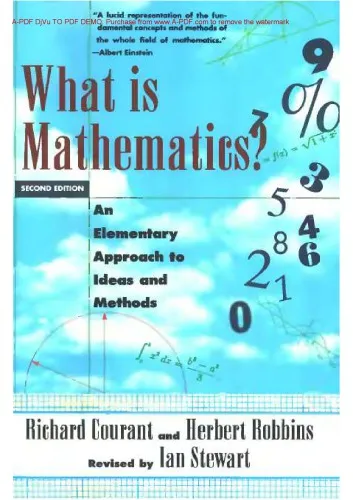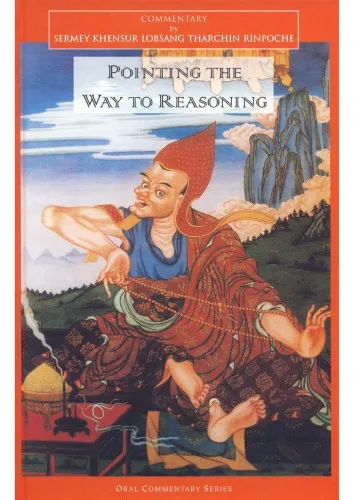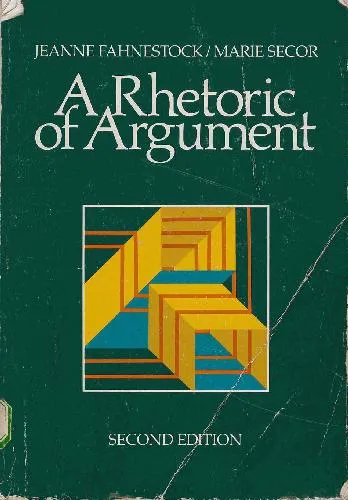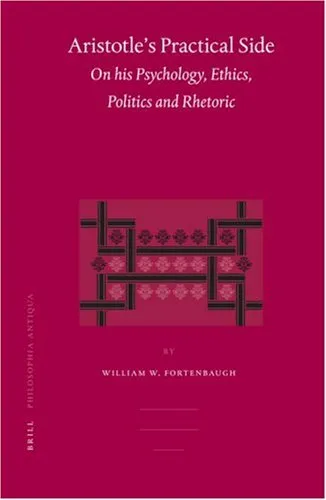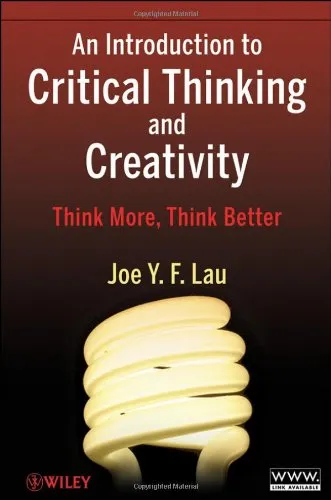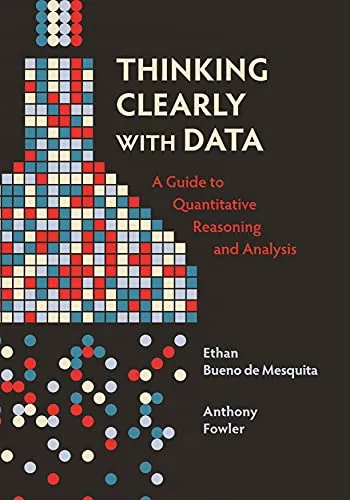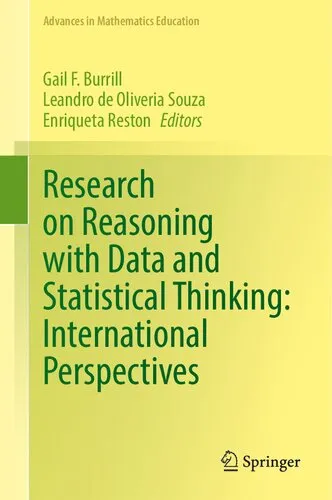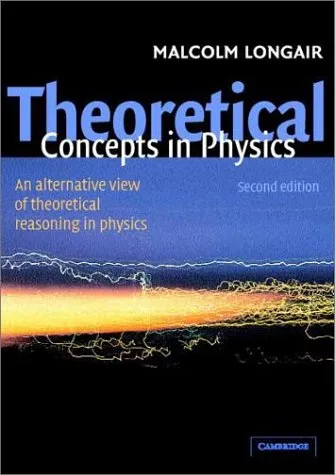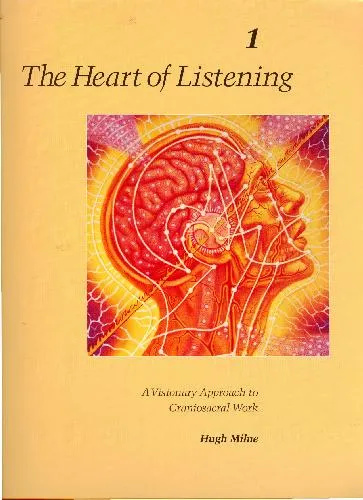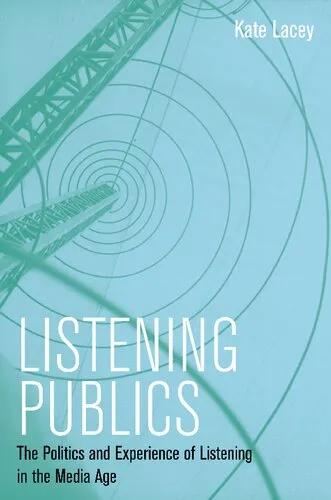Why We Argue (And How We Should): A Guide To Political Disagreement In The Age Of Unreason
4.0
بر اساس نظر کاربران

شما میتونید سوالاتتون در باره کتاب رو از هوش مصنوعیش بعد از ورود بپرسید
هر دانلود یا پرسش از هوش مصنوعی 2 امتیاز لازم دارد، برای بدست آوردن امتیاز رایگان، به صفحه ی راهنمای امتیازات سر بزنید و یک سری کار ارزشمند انجام بدینکتاب های مرتبط:
معرفی کتاب «Why We Argue (And How We Should): A Guide To Political Disagreement In The Age Of Unreason»
کتاب «Why We Argue (And How We Should)» نوشته اسکات ف. آیکن و رابرت بی. تلیس، اثری بینظیر و عمیق درباره اهمیت بحثهای منطقی و نحوه مدیریت اختلافات سیاسی در دنیای امروزی است. این کتاب به خصوص در دنیای پر از تنشهای سیاسی و اجتماعی امروزی، توجه ویژهای به چالشهای مرتبط با استدلال و اختلافنظرها دارد. مؤلفان این کتاب تلاش کردهاند ابزاری مفید و عملی برای تقویت دموکراسی از طریق گفتوگوی درست و آگاهانه ارائه دهند.
خلاصهای از کتاب
کتاب «Why We Argue (And How We Should)» بر اساس این ایده پایهریزی شده است که استدلال و بحث بخش مهمی از یک دموکراسی سالم هستند. نویسندگان استدلال میکنند که ما اغلب به طرز ناسالم و غیرمنطقی وارد بحث میشویم، که این مسئله موجب افزایش شلوغی و خشونت کلامی میشود. این کتاب فضایی روشن برای فهم دلایل شکلگیری این مشکلات فراهم میکند و سپس به ارائه روشهای عملی برای تبدیل این اختلافات به ابزارهایی برای تحول و پیشرفت اجتماعی میپردازد. از بحث درباره اصول critical thinking گرفته تا شناسایی مغلطههای رایج و روشهای پاسخ به آنها، این کتاب یک سفر تحلیلی در دل پیچیدگیهای استدلال سیاسی و اخلاقی را ارائه میدهد.
یادگیریهای کلیدی از کتاب
- چگونه critical thinking میتواند الگوی زندگی و شیوه تفکر ما را تغییر دهد.
- شناسایی و اجتناب از مغلطههای رایج نظیر ad hominem و straw man.
- راهکارهای عملی برای مدیریت اختلافات سیاسی به شیوهای سازنده.
- ایجاد فضای احترام متقابل در بحثها حتی در زمانی که اختلافنظرها شدید است.
- چگونگی اصلاح فرآیندهای استدلالی برای جلوگیری از انحراف به سوی تعصب و بیمنطقی.
نقلقولهای برجسته از کتاب
"Arguments are not war; they are negotiations aimed at truth and understanding."
"A democracy cannot survive without citizens who are capable of rational disagreement."
"The practice of argumentation is central to our social and political life, and we neglect its norms at our peril."
چرا این کتاب اهمیت دارد
اهمیت این کتاب در دنیای امروز که مملو از اختلافنظرهای شدید و گفتوگوهای توأم با بیاحترامی است، کاملاً مشهود است. آیکن و تلیس با تأکید بر critical thinking و اهمیت اخلاق در بحث، نشان میدهند که چطور امکان بازگشت به فضایی متمدنانه برای تبادل ایدهها وجود دارد. این کتاب نه تنها یک راهنمای عملی برای خوانندگان است، بلکه یک ابزار ارزشمند برای سیاستمداران، مربیان و هر فردی که به بهتر کردن کیفیت گفتوگوها و اختلافنظرهای خود علاقهمند است، محسوب میشود. با توجه به شدت گرفتن شکافهای سیاسی و اجتماعی در جوامع مختلف، مطالعه این کتاب نه تنها آموزنده، بلکه ضروری است.
Introduction to "Why We Argue (And How We Should): A Guide to Political Disagreement in the Age of Unreason"
In a time when political discourse and civic conversation often feel like they are spiraling into hostility and irrationality, Why We Argue (And How We Should) offers a timely, thoughtful, and practical guide to understanding and navigating disagreements. Written by Scott F. Aikin and Robert B. Talisse, this book provides readers with essential tools for engaging in productive arguments, fostering mutual respect, and strengthening democratic society.
Divisive politics, social media outrage, and polarized opinions have created an environment where the art of argument is rapidly eroding. Yet disagreements, especially in politics, are inevitable and necessary for a flourishing democracy. Aikin and Talisse argue that rather than avoiding disagreements, we must learn to approach them with deliberation, fairness, and logic. This book equips readers to recognize common fallacies, avoid unproductive rhetorical traps, and engage in arguments that lead to reflection, understanding, and meaningful progress. Though firmly rooted in philosophy and logic, the text remains accessible and practical, making it a valuable resource for everyone seeking to improve civic culture and navigate contentious times.
Detailed Summary of the Book
The authors begin by outlining the central problem: modern political disagreement has increasingly become a battlefield dominated by insults, tribalism, and irrationality. Instead of approaching politics as a platform for collaborative problem-solving, many treat it as a zero-sum game designed to vanquish opponents. Through the book, Aikin and Talisse show how this not only undermines democracy but also weakens individuals' intellectual character.
The book systematically explores the philosophy of argumentation, providing readers with an understanding of key concepts, such as reasons, evidence, fallacies, and the structure of valid arguments. The authors emphasize that arguments are not merely fights but are cooperative acts of reasoning intended to tackle misunderstandings and identify shared truths. The text incorporates examples from real-life politics to illustrate how arguments often devolve into shouting matches and offers strategies to remedy this.
The authors also explain the ethical dimensions of arguing, such as the importance of respecting one's interlocutors and making arguments in good faith. They delve into practical strategies for identifying when someone else is not arguing fairly and how to respond without escalating unproductive conflict. Finally, the book considers the role of humility in argumentation, urging readers to remain open to the possibility of being wrong and to value the pursuit of truth over the need to "win."
Key Takeaways
- Disagreements are inevitable and necessary in a thriving democracy.
- Good arguments are collaborative exercises aimed at discovering truth, not defeating one's opponents.
- Understanding common fallacies and rhetorical traps is essential for engaging in productive discussions.
- Productive arguments require intellectual humility, respect, and a commitment to fairness.
- Improving civic discourse begins with individual responsibility in how we argue and engage with others.
Famous Quotes from the Book
Here are some thought-provoking quotes from Why We Argue (And How We Should):
"Disagreement is not an unfortunate byproduct of democracy; it is its essence."
"Arguing well is not just a skill—it is a civic virtue."
"To argue is to engage with others as equals, committed to the shared task of reasoning together."
"Winning an argument at the expense of truth is a hollow victory."
Why This Book Matters
The importance of this book cannot be overstated, especially in today’s polarized environment. By offering a blueprint for restoring reason and civility to political disagreement, Aikin and Talisse fill a critical gap in the public discourse. Their work reminds us that democracy relies on the capacity of everyday citizens to engage with one another respectfully and rationally even when they profoundly disagree.
Ultimately, Why We Argue (And How We Should) is not just a book for philosophers or political theorists; it is a book for anyone who values truth, fairness, and the principles of democracy. Whether you are a student, professional, activist, or casual observer of politics, this book provides you with the tools to participate meaningfully in public life without succumbing to the toxic tendencies of the age of unreason.
دانلود رایگان مستقیم
شما میتونید سوالاتتون در باره کتاب رو از هوش مصنوعیش بعد از ورود بپرسید
دسترسی به کتابها از طریق پلتفرمهای قانونی و کتابخانههای عمومی نه تنها از حقوق نویسندگان و ناشران حمایت میکند، بلکه به پایداری فرهنگ کتابخوانی نیز کمک میرساند. پیش از دانلود، لحظهای به بررسی این گزینهها فکر کنید.
این کتاب رو در پلتفرم های دیگه ببینید
WorldCat به شما کمک میکنه تا کتاب ها رو در کتابخانه های سراسر دنیا پیدا کنید
امتیازها، نظرات تخصصی و صحبت ها درباره کتاب را در Goodreads ببینید
کتابهای کمیاب یا دست دوم را در AbeBooks پیدا کنید و بخرید
1547
بازدید4.0
امتیاز0
نظر98%
رضایتنظرات:
4.0
بر اساس 0 نظر کاربران
Questions & Answers
Ask questions about this book or help others by answering
No questions yet. Be the first to ask!
